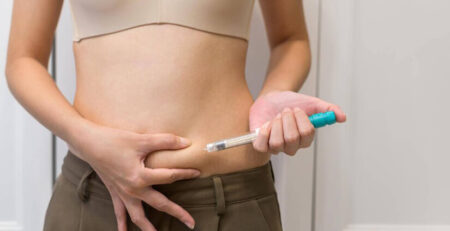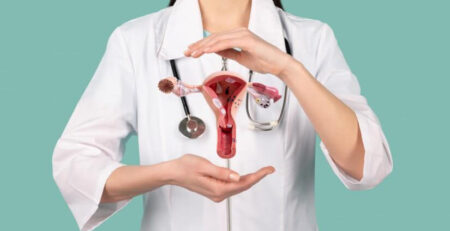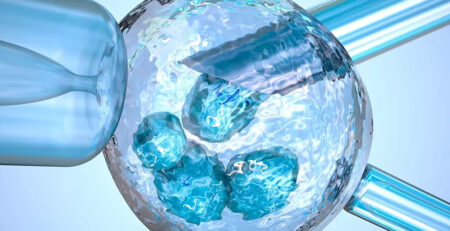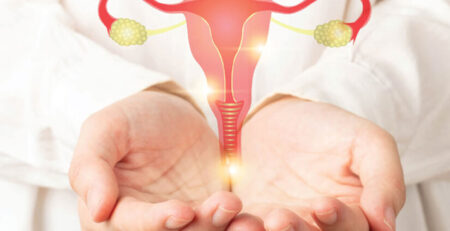How to Improve Egg Quality and Quantity
Are you thinking of starting a family? Or maybe you have already started trying to conceive but have failed. If this is the case, you are not alone. One in eight couples experience infertility, and many factors can contribute to this; one of them is poor egg quality and quantity.
Want to get the deeper insights into it?
Keep reading!
Women have millions or two million potential egg cells when they are born. However, with age, that number decreases. Women only have roughly 300,000 eggs remaining by the time they reach adolescence. And just a few hundred will be released throughout their reproductive years.
But you must know that age is not the only issue to consider. The quality of our eggs is also determined by diet, lifestyle, genetics and environment we live in. An important predictor of a woman’s egg reserve is Anti-Müllerian Hormone (AMH), a blood test that indicates the quantity and quality of egg. There are several methods that you can try to improve your egg quality and quantity.
Let’s explore them.

Understanding Low Egg Quality and Quantity
Ovarian reserve is a term used to describe the number and quality of eggs that a woman has left in her ovaries. A follicle is a small sac in the ovary that contains an egg. During ovulation, one follicle releases its egg into the fallopian tube, where it can be fertilized by sperm. The number of eggs in a woman’s ovaries peaks around 20.
But here is a thing. This egg count naturally decreases. And for some women, this process happens faster than others. This is called diminished ovarian reserve.
In this condition, your ovaries start to lose their ability to produce eggs. This means that you have fewer and fewer eggs, and the quality of the eggs may not be as good as it used to be. Diminished egg reserve is one of the most common causes of infertility in women over the age of 35, requiring infertility treatment.

But what causes it?
While aging is one of the significant factors that can lead to low egg quality and quantity, several other factors can cause it, including:
- Genetic disorders such as fragile X chromosome
- Aggressive treatment like chemotherapy or radiation therapy
- Having surgery on ovaries
- Autoimmune disorder
- Lifestyle habits like smoking
However, sometimes, there is no apparent cause for low ovarian reserve. Understanding these causes can be beneficial in infertility treatment.
So, what are the symptoms of low egg reserve?
There aren’t many apparent indications of ovarian reserve loss. However, if you are suffering from the condition, you might experience:
- Difficulty in getting pregnant
- Late or missed mensural periods
- Shorter menstrual periods than the average of 28 days
- Heavy mensural flow
- Miscarriage
Improving Egg Quality and Quantity
Now, we have a basic understanding of low egg reserve and its cause. Let’s move to the important part: improving egg quality and quantity.
There is no magic pill or quick fix to boost your egg count or improve its quality once it starts to decline with age. But there are a few simple things you can do that might help. These steps may include:
Maintain a Healthy Weight: Being overweight can decrease your egg quality and make it harder to conceive because carrying extra pounds can lead to hormonal imbalance and disrupt ovulation. That’s why doctors recommend a body mass index (BMI) between 18.5 and 23.5 if you are trying to get pregnant.
Shedding some pounds can be a challenge, but it is worth it when it comes to your infertility treatment. Not only will it boost your chances of getting pregnant, but it will also help you avoid all sorts of other health problems that can come in pregnancy with being overweight. So, eat a healthy diet and exercise regularly to lose weight and reach your target BMI.
Eat Healthy: You might wonder how diet can affect the quality and quantity of your eggs. But just like your overall health, your egg health also depends on what you eat or drink. So, start consuming nutritionally rich foods to boost egg health. To give your body the nutrients it needs to make strong, healthy eggs, eat whole grains, lean meats, leafy greens, fresh veggies, fruits, and nuts. Avoid processed foods and meats, and limit your salt and sugar intake. Having a healthy diet can be an effective low AMH treatment.
Exercise Regularly: A good workout will not only make your entire body feel great, but it can also do wonders for your eggs. Exercise increases blood flow, which means more oxygen and nutrients are delivered to your ovaries, boosting their ability to produce healthier eggs. Working out also helps to reduce stress, which can increase egg quality.
Include Supplements to Your Diet: Add essential supplements to your diet after consulting your IVF specialist in Delhi. Take coenzyme Q10, melatonin, and fish oil (omega-3s) to boost your egg quality. How do these supplements work to improve your egg quality?
These supplements are packed with antioxidants that help protect your eggs, support your ovaries, and even help you sleep better. Omega-3s are especially good for preserving fertility and boosting egg quality, while Q10 provides antioxidants that reduces the oxidative stress hampering the quality of eggs.
Vitamin A is another great supplement for improving your egg quality and embryo development, while vitamin E helps lower oxidative stress and boost follicular blood supply. Zinc can also promote high-quality oocyte development, while adding a folate supplement facilitates oocyte quality, maturation, fertilization, and implantation.
One of the hormones that can also play a role in low AMH treatment is DHEA, a natural steroid hormone that declines with age. Like giving your eggs a rejuvenating treatment, DHEA supplementation has shown promise in improving egg quality and increasing pregnancy rates in women with low egg reserves.
Stay Away From Cigarettes: Do you know that smoking cigarettes can also affect your egg reserve? How?
The chemicals in cigarettes can mess with your egg cells DNA, making them less likely to turn into healthy babies. Since women are born with all the eggs they will ever have, it’s best to keep them healthy and away from harmful chemicals like those in cigarettes.
Manage Stress: When stressed for a long time, your body produces excess hormones like cortisol and prolactin. These hormones can interfere with ovulation or even halt ovulation, making it difficult to conceive. So, it is essential to manage your stress levels.
Indeed, you can’t avoid stress completely, but things like yoga, breathing exercises, and spending time with loved ones can help a lot. Here are some other tips for managing stress that could be helpful in low AMH treatment:
- Find a physical activity that you like and engage in it regularly.
- Get enough sleep.
- Limit your caffeine and alcohol intake.
Improve Blood Flow: Did you know oxygen-rich blood to your ovaries is vital for healthy eggs and a smooth pregnancy?
So, to improve the oxygenated blood flow to the ovaries, drink more water to keep your body hydrated. When you are dehydrated, your blood gets thick and sticky, slowing down circulation throughout your body. Therefore, aim to drink seven to eight glasses of water daily. Also, exercise, do yoga, and manage stress levels to improve blood flow.
Consider Egg Freezing
You might be wondering how egg freezing could help to improve the quality and quantity of eggs.
Let’s understand this.
We all know that egg quality and quantity reduce with age. So, if you’re not ready to start a family yet but want to preserve your fertility, egg-freezing is a great option. The ideal time to freeze your eggs is when you’re in your early 20s or early 30s because, at this time, your egg quality is at its peak.

Monitoring Your Egg Quality During IVF
Monitoring egg quality during IVF is crucial for maximizing the chances of successful implantation and pregnancy. Various methods are employed to assess egg quality, including:
Anti-Müllerian Hormone (AMH) Test: AMH is a hormone produced by the follicles in the ovaries. Its level reflects the number of follicles present, which indicates ovarian reserve and overall egg quality. Lower AMH levels generally indicate fewer follicles and low egg quality. In that case, your doctor may prescribe certain low AMH treatments to improve the egg reserve.
Antral Follicle Count (ultrasound): Antral follicles are small, fluid-filled sacs in the ovaries that contain developing eggs. The AFC test counts the number of antral follicles in each ovary. Based on AFC, the fertility specialist makes the infertility treatment plan.
Follicle Monitoring Ultrasounds: During IVF cycles, your IVF specialist in Delhi performs regular ultrasounds to monitor the growth and maturation of follicles. The shape, size, and echogenicity (brightness) of the follicles can provide clues about the quality of the eggs they contain.
FSH Testing: FSH, or follicle-stimulating hormone, is another hormone the pituitary gland produces. During an IVF cycle, FSH levels are monitored by your IVF specialist in Delhi to assess your body’s response to fertility medications. Elevated FSH levels may suggest diminished ovarian reserve and lower egg quality.
Take Away!
Improving your egg quality and quantity can take some time and effort. But with the right lifestyle changes, supplements, fertility treatments, and consulting an IVF specialist can help you increase your chances of getting pregnant.
If you are concerned about your egg quality or quantity, consult Dr Rhythm Gupta, an IVF and infertility treatment expert. She can help you develop a plan to improve your fertility with a customized, low AMH treatment plan and increase your chances of getting pregnant.












